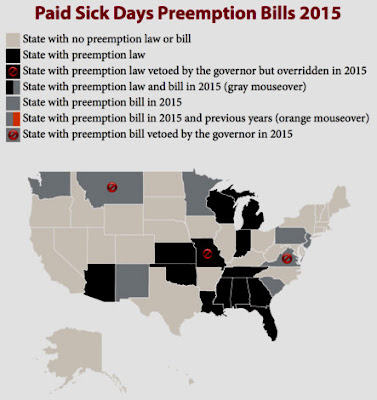Bill Knight column for Thursday, Friday or Saturday, April 28, 29 or 30
When North Carolina lawmakers recently passed a bill after just nine hours of discussion in a special session, most media coverage focused on language nullifying a Charlotte ordinance that let transgender people use public bathrooms in accordance with their gender identity and also extended discrimination protections to transgender citizens. However, the law, signed by Republican Gov. Pat McCrory, also sought to “supersede and preempt” other local ordinances.
Such controversial laws are about more than checking who uses what bathrooms. Prohibiting what laws cities can pass and enforce, it’s a phenomenon called “preemption,” and given the South’s long-time claim to advocate for so-called states’ rights above federal laws, it’s either irony or hypocrisy.
In North Carolina and elsewhere, preemptive laws ban towns, counties and other local levels of government from approving ordinances ranging from minimum wages, paid sick leave and fracking restrictions to sanctuary-city immigrant protections, plastic-bag bans and fire sprinklers.
“Agriculture, guns and knives, minimum wage increases and employee benefits … and a wide range of environmental protections were the most common targets of preemption,” said Marc Pertschuk of the Preemption Watch advocacy group. “But perhaps the newest trend was exemplified by bills that sought blanket preemption of ALL local authority over ANY topic already addressed at the state level, limiting local control and democratic processes across public health, safety and social justice.”
Conservative legislatures are being helped by the right-wing, Koch brothers-funded American Legislative Exchange Council (ALEC), which at its December conference warned of “draconian” restrictions against fracking.
In some states, corporate-cozy lawmakers have become ardent foes of local control or the grassroots activism that sparks change, especially if those ordinances are progressive or worker-friendly.
Besides forbidding local governments from enacting nondiscrimination laws (Mississippi, Arkansas and other states), at least 29 legislatures have introduced bills to block local laws, according to another advocacy group, PR Watch. Such preemption statutes aim to override ordinances:
* requiring higher minimum wages (Michigan and Oregon) and “living-wage” ordinances (Florida),
* paid sick days (Arizona and Missouri),
* mandates on reasonable scheduling for retailers (Michigan),
* “home rule” authority for communities (Oklahoma),
* regulating e-cigarettes (Pennsylvania and Wisconsin),
* rules on the sale of firearms (Nevada, North Carolina, Pennsylvania, Tennessee and Wyoming),
* rules on fracking (Florida, New Mexico, Oklahoma, Pennsylvania, Tennessee and Wyoming),
* limits on businesses using plastic bags (Arizona),
* requirements for providing broadband access to residents (Missouri),
* “sanctuary cities” protecting undocumented immigrants from detention or worse (Texas),
* obligations to label foods that are Genetically Modified Organisms (Congress), and even
* residential fire sprinklers (Nevada and Tennessee),
However, some pushback has started. In Minnesota, legislators are considering a measure to restore rights to local governments, and in Oregon a ballot initiative this fall could empower local jurisdictions to set their minimum-wage thresholds above the statewide standard.
“The good news is that there has never before been a national grassroots movement this powerful and diverse fighting for the right to protect our families, communities and workers at the community level,” Pertschuk said.
[PICTURED: Graphic from the National Partnership for Women and Families.]


No comments:
Post a Comment
Note: Only a member of this blog may post a comment.